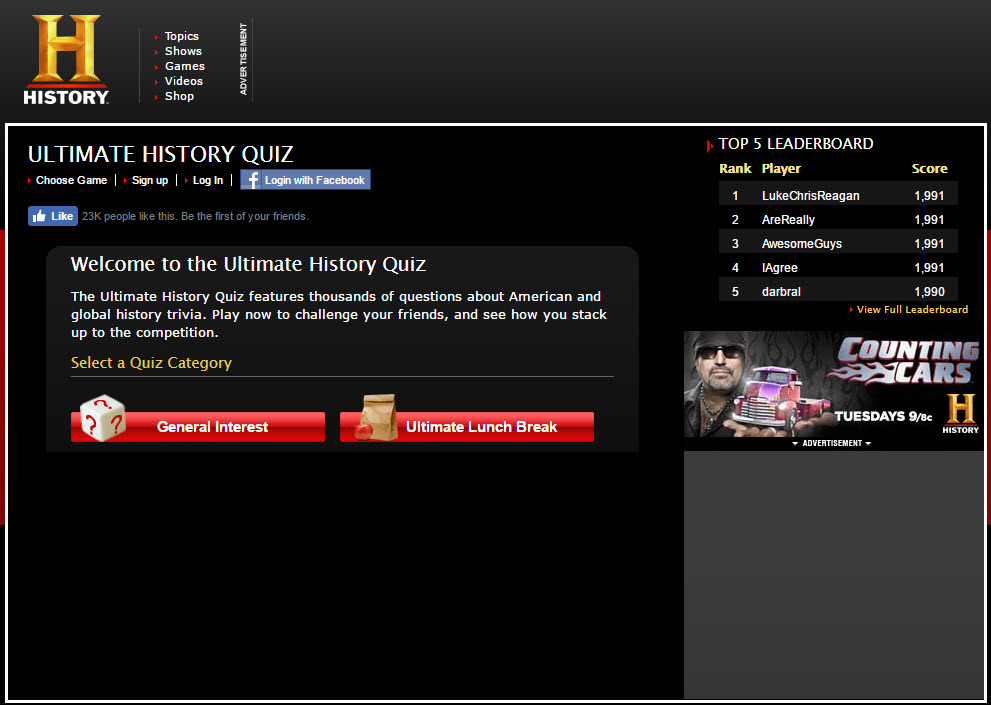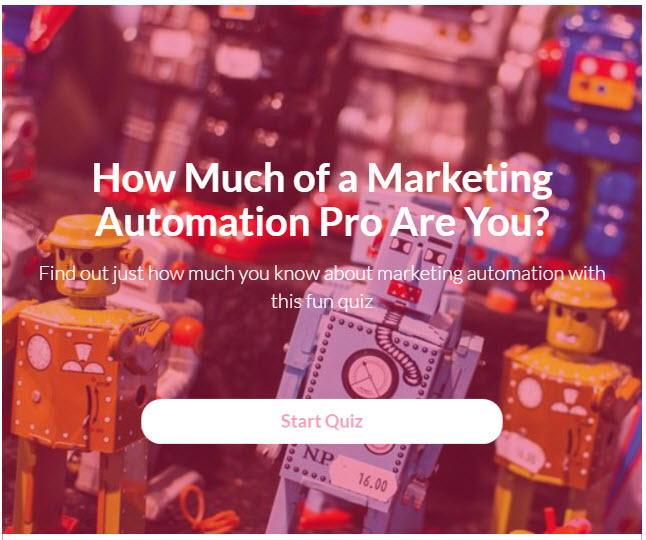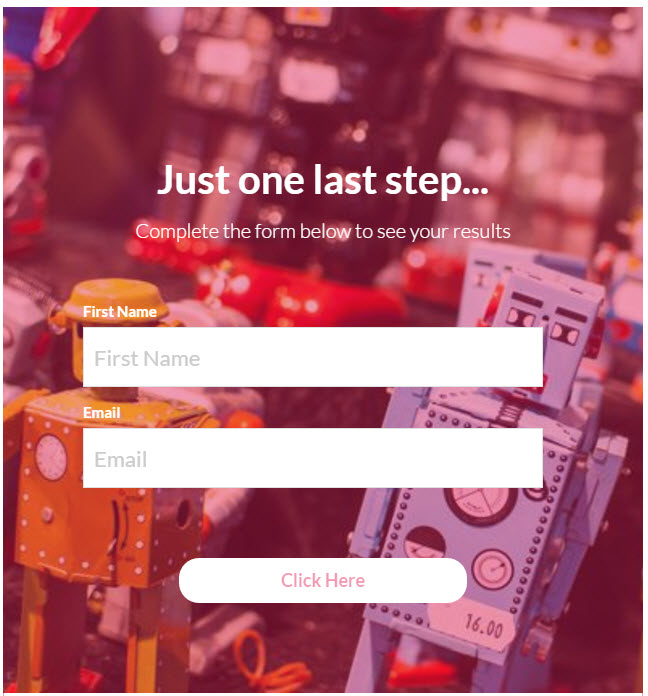As the internet becomes noisier and people grow more cautious about sharing their name and email address with businesses, getting audience attention is just getting more challenging.
Quizzes are a great way to meet this challenge head-on.
Whether it’s a fun pop-culture quiz or a more serious knowledge test, quizzes can be easy and effective ways to motivate users to share their information with you. It’s a much softer, less pushy approach than offering a “bribe” of free content.
Plus, the interaction of a quiz feels more like a conversation to a user – a conversation that results in the user being acknowledged for who they are.
At the end of the quiz, the user is left feeling that you’ve provided them with a service – in this case, that service is in the form of entertainment or knowledge evalution. This creates a friendly context and sets a positive tone for the customer experience right from the start.
As if those reasons weren’t enough, quizzes get shared more often than most types of content. BuzzSumo reported that a quiz gets shared 1,900 times on average.
Quizzes have viral sharing power. On average, they get shared 1,900 times.
Keep reading to learn more about the two main categories of quizzes and how they can help you generate more sign-ups and improve the results of your content marketing strategy.
Trivia and Personality Quizzes
A trivia or personality quiz is especially incentivizing for sign-ups.
Users want to know the results of their quiz (i.e. What personality type am I? How did I score on the quiz?), and will be a lot more likely to complete the opt-in form after investing time taking the quiz.
With a trivia quiz, your opt-in incentive can be the answer key. Curious quiz-takers will enthusiastically share their contact information in order to know the answers to trickier questions.
History.com goes all out with their Ultimate History Quiz. It even includes a leaderboard, so you can see how you stack up against other history buffs.
Knowledge Quizzes
Like trivia quizzes, knowledge quizzes test a user’s understanding of a subject. Knowledge quizzes tend to be a bit more on the serious side, though, and focus on determining the user’s knowledge level.
These quizzes help users identify gaps in their knowledge, which can motivate them to seek further education or otherwise take action to fill that knowledge gap.
On the business side, knowledge quizzes can give you insights about your customers that you can then use to deliver targeted content. You can certainly require the user to sign up in order to get their results – but even if you choose to gate the results, you’ll gain valuable data about your audience.
Quizzes give insights about your customers that help you create and deliver more targeted content.
Here’s an example from Autopilot that tests the user on their marketing automation knowledge:
At the end, they do gate the results. However, the data they get from the user when they answer the questions on the quiz are probably much more valuable to the company than an email address!
How Does YOUR Content Score?
Interactive content can be much more engaging to content-fatigued audiences than static content. In fact, 45% of content marketers rated interactive content as “extremely effective” or “very effective” in a recent Content Marketing Institute study.
Quizzes help you create a positive customer experience, gather email addresses from even cautious audiences, and provide invaluable insight into the mind and life of your customers.


